London
Boris Johnson is enjoying himself back at The Spectator. “My place of former employment,” the former editor booms as he sits down, stands up and starts re-ordering items around the wood-paneled office. “I like this book-lined air that you’ve given me — very, very grand.”
He’s spent the past months flogging his memoir, Unleashed. He hopes to hit 100,000 UK sales well before Christmas. Such is his enthusiasm for his cause that he was kicked off the Channel 4 US election night show for “banging on about his book.” “I’ve been in the Gulf, where I didn’t sell very many copies, but in Paris I sold a lot,” he explains. Australia is next.
One memorable stop was Argentina, where he met Javier Milei. The local press excitedly reported that he’d agreed to set up a meeting between the Argentinian president and Mick Jagger. How is he getting on? “I haven’t yet swung it,” he admits. “I feel it’s got to happen… he is an absolutely fantastic guy and he loves the Rolling Stones — he loves Britain by the way.” Jagger has yet to comment on the idea.
Johnson is enthusiastic about Milei’s program to cut government waste. “We all in Europe need to learn from what he has to say about the size of the state and government departments, and Argentina is a particular case,” he says. “But nobody in the UK or most western European economies could say that we’re immune from this problem. The state is too big and we need to fix it.”
Of course, when Johnson was in No. 10 the opposite happened: the state swelled, in large part as a result of the pandemic — and the tax rises required to pay the Covid bill. Does he think much about what would have happened in his premiership if it had not been hit by Covid a few months in? “Yes, I do,” he says. “I think it’s very sad.”
But he goes on to say that he suspects that even without lockdown and Partygate, he might well have been pushed out of No. 10 prematurely. “Look, I think that they would have tried,” he says. “I was — as I have been before in my life — the utensil for my beloved party to win but then, once I’d won, I was much more disposable than I believed and that’s a tricky position to be in.”
This is the narrative of Johnson’s memoirs — a valiant if naive leader has his time in office cut short by pesky MPs who couldn’t stay off Twitter. He wrote the book after leaving office, when “you can recollect in tranquility and you can more or less piece together what happened.” There are some moments of self-reflection. Johnson writes that he is no longer sure the draconian lockdowns he imposed were the right move.
“The pandemic was a nightmare for me,” he says. “I think we were fairly good at communicating some pretty unbelievably complicated policies but I think that honestly I found the pandemic a nightmare because I was genuinely uncertain as to the efficacy of some of the things that we were doing.” But he stops short of regretting the whole thing — and says rules were needed. “Fraser [Nelson]… the late lamented editor,” he pauses. “Well, we rejoice at the arrival of his successor, my long-standing buddy Michael [Gove]… but Fraser took a very anti-lockdown position and he kept citing Sweden and so on. Actually I don’t think the comparison was very fair… the Swedes implemented the same sorts of measures, they just did it without quite as much legal coercion and they also have a very different type of society in Sweden.” In contrast, Johnson says, the Brits “needed some rules, even if those rules were not demonstrably efficacious in themselves.”
It’s often pointed out that Johnson the freedom-loving columnist would have railed against many of the things he ended up doing in office: tax rises, lockdown and an anti-obesity drive. How does he think his columnist brain would have marked his record? “Well, very highly obviously, because I’ve had the opportunity. There is a miraculous doctrinal coherence,” he says. “So, look, Boris Johnson the prime minister delivered something that Boris Johnson the columnist had been campaigning on for twenty or thirty years, which was the absence of democracy in our relations with the European Union, or Community as it was when I first started writing about it, and that was a pretty significant thing to do.
“A lot of people still rant about that and say it was all wrong… I expect a lot of Spectator readers read some of your more timid columnists and think it was the wrong thing to do.”
He suddenly switches back to editor mode — suggesting a “series of articles trying to understand and explain why European economies remain so stagnant and so incapable of innovation by comparison with the United States.” Regarding the US, a decision looms for Keir Starmer as Donald Trump returns to the White House. Will the UK hug the EU closer or pick up negotiations for a free trade deal with the world’s biggest economy? For Johnson — who says Trump is “a kindly and a thoughtful man” — the answer is simple: “Sorry, but who has got the faster growth rates?”
Under successive Tory prime ministers, however, the UK-US deal made no progress, partly because of regulatory hurdles to do with chlorinated chicken and hormone-treated beef. Johnson insists he could have overcome the obstacles. “The problem I had was I came in in 2019 and Trump, if you remember, loses in the end of 2020, so we only have a year to get it going… We would have been capable of closing the free trade deal but then Joe [Biden] came in.”
With Trump 2.0 fast approaching, Johnson suggests Starmer lay on a state dinner to build ties with the Donald. And he has an unorthodox proposal for resolving the meat impasse. “Here’s what The Spectator should do. Since we’re against anti-scientific mumbo-jumbo, right, The Spectator believes in logic and freedom and evidence, yes? Right? Get Bruce Anderson to have a huge slap-up beefsteak dinner. Half the guests have American or Canadian hormone-treated beef, because this is one of the biggest sticking points in the deal. And get some British… Now British beef will be absolutely delicious and first-rate — but the American beef… I’m sorry to say the Canadians eat about 60 percent more beef than us but they also live a lot longer, and they have hormones in their beef, so I’m just saying.”
Like Johnson, the current prime minister has been accused of spending too much of his premiership abroad: “Never-Here Keir” and so on. Does he sympathize with Starmer’s current plight?
“Look, he probably does need to focus on what’s going on here. Honestly I think that it’s been epically bad,” he says. “It sort of feels to me that they organically, institutionally didn’t believe they were going to win the next election, right, so it feels to me like Starmer was put in as the placeholder for Wes Streeting or whoever… Wild Wes. And now they’re stumbling around.”
And what about Starmer’s opponent Kemi Badenoch? Johnson did not endorse a candidate for the Tory Party leadership but is effusive — she is “actually doing a very good job right now”: “I warm to her because she seems to me to have a kind of impatience and zap about her that is refreshing. Starmer really is crasheroony snoozefest stodgerama by comparison. I think she can score a lot of runs, I really do.”
If Labour keeps going the way it is, Johnson predicts a one-term government. But will the Tories benefit from Labour’s misfortunes? Couldn’t Nigel Farage be the real winner? “No, I think [his chances are] zero, zero, zero,” he says, before launching into a monologue about his own success in stopping Farage. (The problem in 2024: “They [the Tories] got rid of their visionary leader and that’s obviously my opinion and I’m entitled to it.”)
Were Johnson in the Commons now, he would be facing a vote on assisted dying. How does he see this issue that has divided Starmer’s government? “I was in church the other day and a woman turned to me after the end of the service. She said ‘Please, please, please, whatever you do, vote in favor of this measure.’ I was really wrung out by her because she said she had a terminal condition and she wanted the comfort of knowing that her end, when it came, would be dignified and painless.”
But Johnson says the current legislation is not the solution. “I wouldn’t vote for this bill, I think they need to go back to the drawing board. They need something that is humane and compassionate but would not lead to the industrialization of state-sponsored suicide. I worry that we would be tending in that direction, even if this bill wouldn’t usher that in overnight. I worry that there are other jurisdictions where we can see where it’s going.” The bill passed at the end of November.
Johnson sounds like a man with unfinished business in politics. He likes to keep everyone guessing. His go-to reply to leadership speculation these days is to say that his chances are “about as good as my being blinded by a Champagne cork.” What about simply returning as an MP under Badenoch? He deviates, distracts — and asks me: “What was the question again? Oh yes, me! Look, I think… so I think the point about politics… I did fifteen years of pretty big jobs from the mayoralty onwards and loved it, but all the times I had to make a big step, like to be mayor or to be prime minister, it was really only because the Conservative Party had run out of all other ideas for their candidate.” The suggestion is that he will only come back if the party needs him. Yet it’s clear he could be unleashed once more.



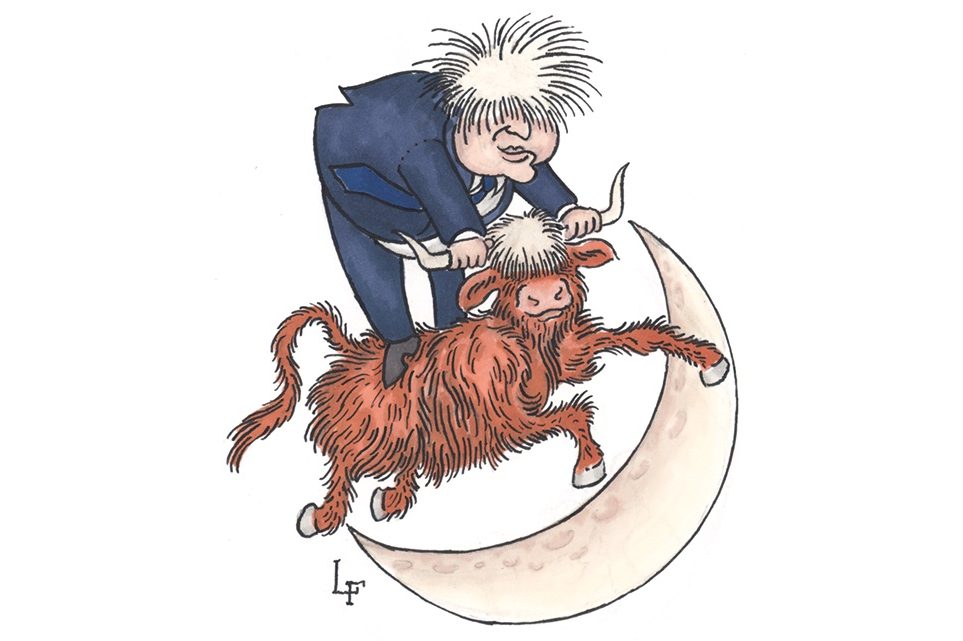






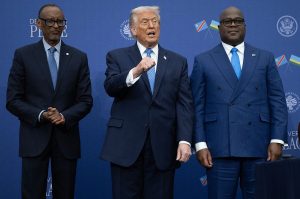
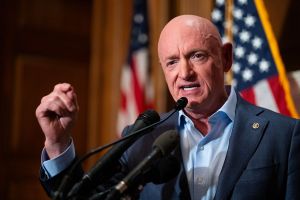





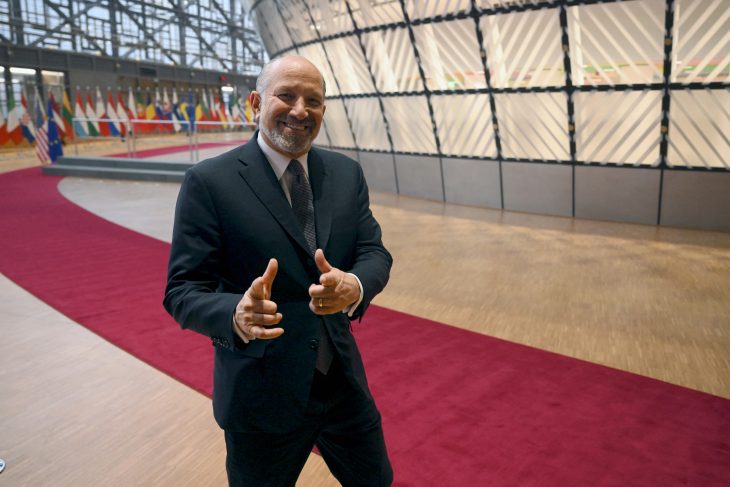
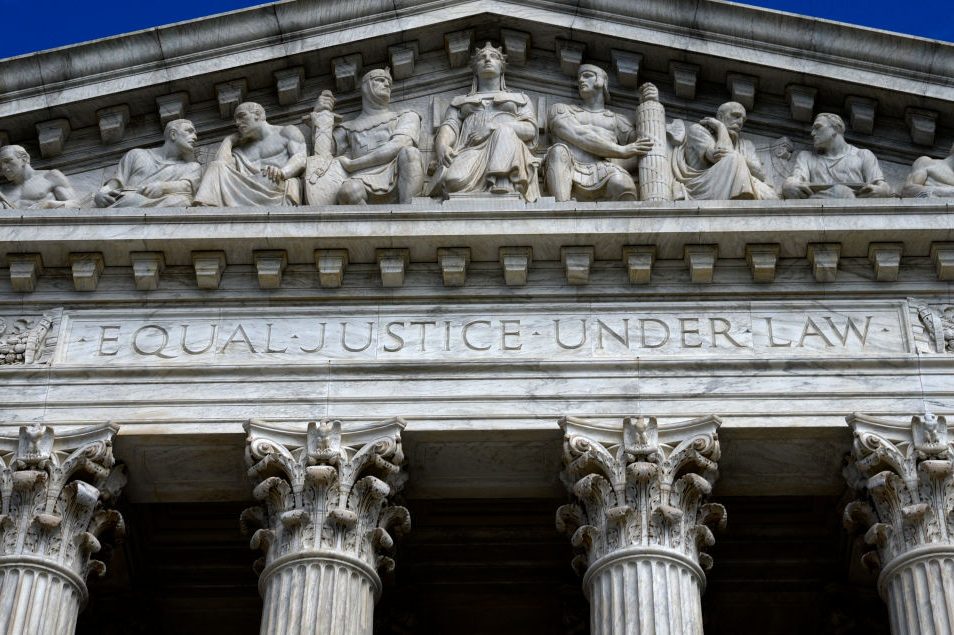







Leave a Reply